
by Victoria Silverwolf
You Only Live Twice

Cover art by Richard Chopping
I trust that the spirit of the late Ian Fleming will forgive me for stealing the title of the last James Bond novel to be published during his lifetime. (Rumor has it that at least one more may be published posthumously.) Those evocative four words bring to mind the notion of life after death.
Since the dawn of consciousness, human beings have pondered the possibility of an afterlife. From reincarnation to oblivion, from Paradise to Gehenna, countless visions of an existence after death have filled the imaginations of poets, prophets, and philosophers.
But what about science fiction writers?
Few SF stories dealing with the subject come to mind. There are, of course, many tales of fantasy about survival beyond the grave, often comic versions of Heaven or terrifying visits to Hell. Science fiction, with its disdain for mysticism (despite a weakness for pseudo-scientific premises that are just as fantastic) generally ignores the question.

This 1962 novel is a rare exception.
It is remarkable, then, that almost half of the latest issue of Worlds of Tomorrow consists of a novella with a large cast of characters who have all died and been resurrected, without the need for a supernatural explanation.

Cover art by George Schelling.
Wanted: Dead or Alive
In fact, a few of the other pieces in the magazine feature characters who may have died, and who may have come back to life, although these are more ambiguous than the lead story.
Day of the Great Shout, by Philip Jose Farmer

Illustrations by Virgil Finlay.
A man who knows he died finds himself alive, nude, hairless, in a young and healthy body, floating in empty space, surrounded on all sides by countless others in his condition. After falling through the void and having a dream about an encounter with God, he wakes up on a new world.
(The author never gives this planet a name. The fact that the stars are different, along with other details, make it clear that it's not Earth. For convenience, let's call it Riverworld, based on the most notable physical feature of the place.)
All around him are other naked, bald people, mostly in a state of panic. One can't blame them, since this afterlife doesn't resemble anything they imagined. When they calm down a bit, it becomes clear that they are now in the valley of a wide river, surrounded on both sides by impassible mountains. A curious device, obviously making use of extremely advanced technology, provides them with food, and even luxury items such as tobacco and lipstick.

A fellow who has an unfortunate encounter with the device proves that it's possible to die a second time.
By this time, we find out that our protagonist is the famous Victorian adventurer Richard Francis Burton. It might be a good idea to list the other characters who play major roles during his adventures on Riverworld.
Dramatis Personae, in order of appearance:
Monat Grrautuft, an alien who died on Earth during the Twenty-First Century.
Kazzintuitruuaabemss, an ape-man who died sometime during the dawn of humanity. Fortunately for the reader, he'll be called just Kazz for the rest of the story.

Kazz in battle.
Peter Frigate, a writer born in Terre Haute, Indiana, in 1918. If that sounds familiar, that's because his time and place of birth are identical with the author's. Given that he has the same initials, it's clear that's he meant as a fictionalized self-portrait. He died during the same incident that led to the death of the alien.
Alice Pleasance Hargreaves, the woman who inspired Lewis Carroll to write Alice in Wonderland.
Lev Ruach, a man who also died at the same time as Frigate and the alien. (It turns out that a grave misunderstanding between aliens and Earthlings led to both being wiped out. The main reason for this apocalyptic incident, I think, is so the author doesn't have to deal with people from the far future. Everyone who has ever died on Earth is now alive on Riverworld, so limiting the timescale from prehistory to the Twenty-First Century makes his job a little less daunting than it might be.)
Gwenafra, a seven-year-old girl who died in ancient Gaul. We find out later that children who died before the age of five are somewhere else, not specified.
These are just the good guys. After some time passes, given the nature of humanity, war and slavery develop on Riverworld. Burton and his companions battle the forces of the infamous Nazi leader Hermann Goering and Tullios Hostilios, a legendary king of Rome, long before it became a Republic and then an Empire.
After this violent conflict, our heroes find out that a man is not what he seems to be, and we learn something about the origin and purpose of Riverworld.

The discovery involves the ability of Kazz to see things that the others can't detect.
The premise is a fascinating one, and Farmer develops the setting in convincing detail. There's plenty of action, and a generous number of science fiction concepts to hold the reader's interest. My only complaint is that the story is open-ended, with Burton ready to continue exploring Riverworld. I suspect that a sequel or two is in the works, perhaps leading to a full novel.
An anticipatory four stars.
Field Weapons Tomorrow, by Joseph Wesley
The first of two nonfiction articles in this issue imagines what the equipment used by an ordinary foot soldier of the near future might be like. Sensitive radar detects enemies, and small missiles of various kinds serve to identify and destroy targets. The author makes use of a couple of fictional characters to demonstrate the technology, enlivening a rather dry subject.
An interested three stars.
Retreat Syndrome, by Philip K. Dick

Illustrations by Gray Morrow.
Starts with a guy stopped for speeding in his futuristic vehicle. This mundane beginning soon turns weird as the fellow moves his hand through the dashboard of his one-wheeled car as if it weren't there. We're firmly in the territory that the author explored in previous works; what is reality?
Flashing back reveals that the man remembers killing his wife with a laser gun when she threatened to reveal plans for a revolution against Earth by colonists on Ganymede. His psychiatrist advises a visit to the woman, who is apparently alive and well on Earth.

Did this happen or not?
The guy thinks he's been brainwashed, and that he's not on Earth at all, but still on Ganymede. A mind-altering drug may be involved.
The truth is a little more complicated than that. The fellow winds up committing what promises to be an endless cycle of attempted murders that might not be real.
Touches of what Simone de Beavuoir might call (sexual) 'oppression' make reading an otherwise intriguing story uncomfortable. We're told that the woman intended to betray the revolution out of petty spite and female bitterness. Another direct quote from the protagonist:
Like all women she was motivated by personal vanity and wounded pride.
That's a pretty wide-sweeping indictment of half the human race, even if we accept the fact that the main character isn't in his right mind. Trying to ignore this unpleasant part of the story, I found it to be compelling, with one of the author's more accessible plots.
A slightly offended four stars.
The Pani Planet, by R. A. Lafferty

Illustration by Norman Nodel.
The commander of a military expedition on an alien planet dies. The only native inhabitant who bothers to speak to the humans offers to fix the broken man. Rejecting this as ridiculous, the new leader buries the dead officer, who treated the aliens decently, and initiates a new, harsher policy. You won't be surprised to find out that the deceased commander returns to life. Of course, not all is what it seems to be.
Typical for the author, this story combines whimsy with tragedy. There's comedy in the broken English of the alien, and the tale ends with a joke, but there's also torture and death. The details of the plot are gimmicky, but it's worth reading.
An ambiguous three stars.
Stella and the Moons of Mars, by Robert S. Richardson
Our second nonfiction article rehashes material that appeared in the December 1963 issue of the magazine. Once again, we go over the remarkable fact that Jonathan Swift seems to have predicted that Mars would prove to have two moons, long before they were discovered, in his satiric classic Gulliver's Travels. After talking about the history of the sighting of the satellites, and discussing their known and speculative properties, the article half-seriously suggests that Swift might have seen them through a telescope and slyly announced the fact in the pages of his book. At least the author is honest enough to admit that this hypothesis is impossible, given the limitations of telescopes in Swift's time. We learn a little about the moons of Mars, but the rest is old hat.
An overly familiar two stars.
The Dead Ones, by Sydney van Scyoc
Once again we have death and revival, of a sort. A man is horribly injured in an industrial accident, and is presumed to be near death. Not much later, he turns up perfectly fine. His son-in-law smells something fishy, and finds out the truth about the mysterious health care system of this future world. There's a twist ending you may see coming.
This story features some of the most implausible happenings I've ever read. First of all, you have to believe that one secretive company controls all health care. Secondly, you have to accept that nobody minds the fact that they experience loss of memory during routine physical exams. Thirdly, you have to presume that the hero is the only person who has ever questioned the fact that many people approach death from disease or injury, yet are completely healed right away in some unseen manner.
A skeptical two stars.
Manfire, by Theodore L. Thomas

Illustrations by Jack Gaughan.
The bizarre, and probably imaginary, phenomenon known as spontaneous human combustion becomes a worldwide plague in the near future. (The author calls it pyrophilia, but that seems like a very misleading term. The victims of this horrible death certainly don't love it!) Governments make use of all possible resources in an attempt to solve the problem.

Off to secure the remains of a victim.
The United States Secretary of Health, Education, and Welfare contacts an eccentric, reclusive genius to see if he can help.

Our hero.

A victim.
The fellow investigates things in his own way, eventually setting up a team of experts to work on the mystery from a strictly theoretical viewpoint.

He also makes sure that they have plenty of booze.
Other than some gruesome scenes of people being consumed by flames coming out of their bodies, and investigators collecting the grisly remains for study, there isn't much to this story other than the main character's method of attacking the problem. The point seems to be that throwing a bunch of highly intelligent people in a room and having them come up with speculative hypotheses is superior to the methodical collection of data. I'm not sure I agree with that, since both are important. The explanation for the rise in spontaneous combustion reveals some ingenuity on the part of the author, but is rather anticlimactic.
A disappointed two stars.
Can These Bones Live?
Like people, most stories have a limited lifetime. A lucky few gain something like immortality, reprinted in anthologies that survive when others fade away. The two authors named Philip have a good chance of seeing their creations resurrected from the pages of the magazine, into new bodies in the form of books. The other writers, maybe not as much. Only time can tell, and, like the afterlife, nobody really knows anything about the future.
[Come join us at Portal 55, Galactic Journey's real-time lounge! Talk about your favorite SFF, chat with the Traveler and co., relax, sit a spell…]

![[November 9, 1964] Shall We Gather At The River? (January 1965 <i>Worlds of Tomorrow</i>)](https://galacticjourney.org/wp-content/uploads/2019/11/Worlds_Of_Tomorrow_v02n05_1965-01_Gorgon776_0001-3-672x319.jpg)

![[November 7, 1964] Landslides and Damp Squibs (December 1964 <i>IF</i>)](https://galacticjourney.org/wp-content/uploads/2019/11/641107cover-672x372.jpg)









![[November 5, 1964] The State of the Solar Empire: <i>Perry Rhodan</i> in 1964](https://galacticjourney.org/wp-content/uploads/2019/11/PR0107-350x372.jpg)










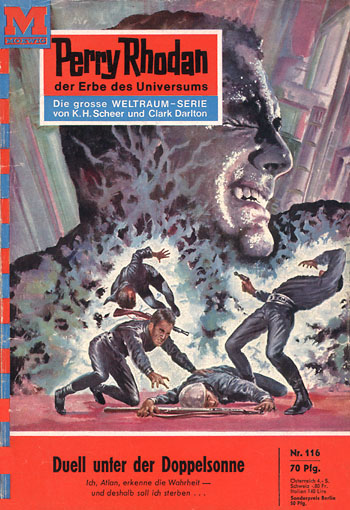
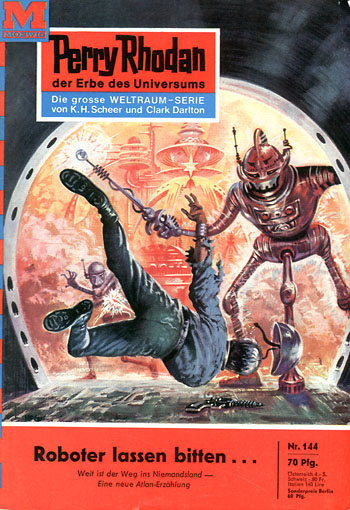
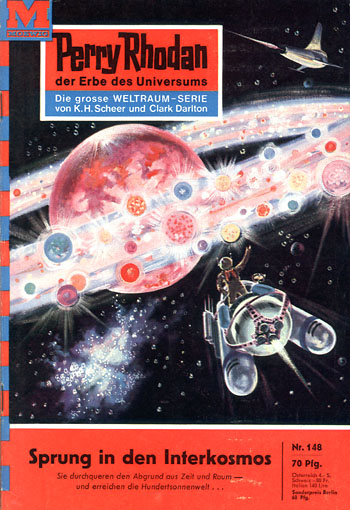
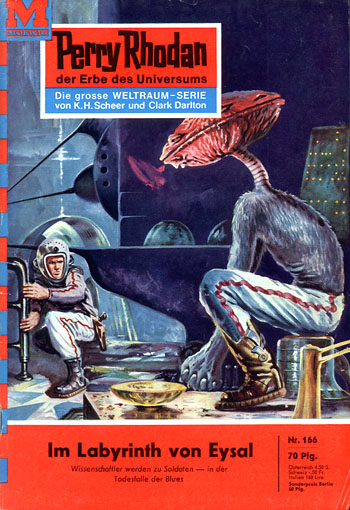

![[October 30, 1964] The Deadly Barrier (November 1964 <i>Analog</i>)](https://galacticjourney.org/wp-content/uploads/2019/10/641030cover-672x372.jpg)









![[October 28, 1964] We Live In Hope (November/December 1964 <i>New Worlds</i>)](https://galacticjourney.org/wp-content/uploads/2019/10/NW145a-672x372.jpg)







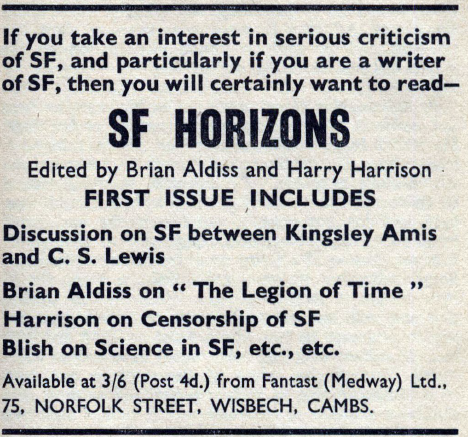
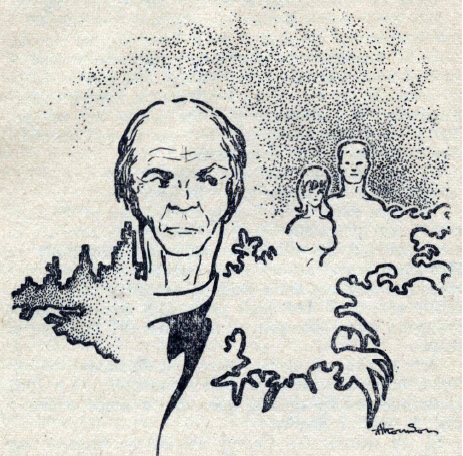


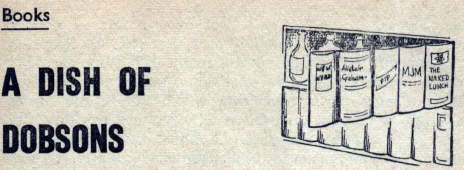


![[October 24, 1964] Nothing Lasts Forever (November 1964 <i>Fantastic</i>)](https://galacticjourney.org/wp-content/uploads/2019/10/Fantastic_v13n11_1964-11_0000-4-672x205.jpg)





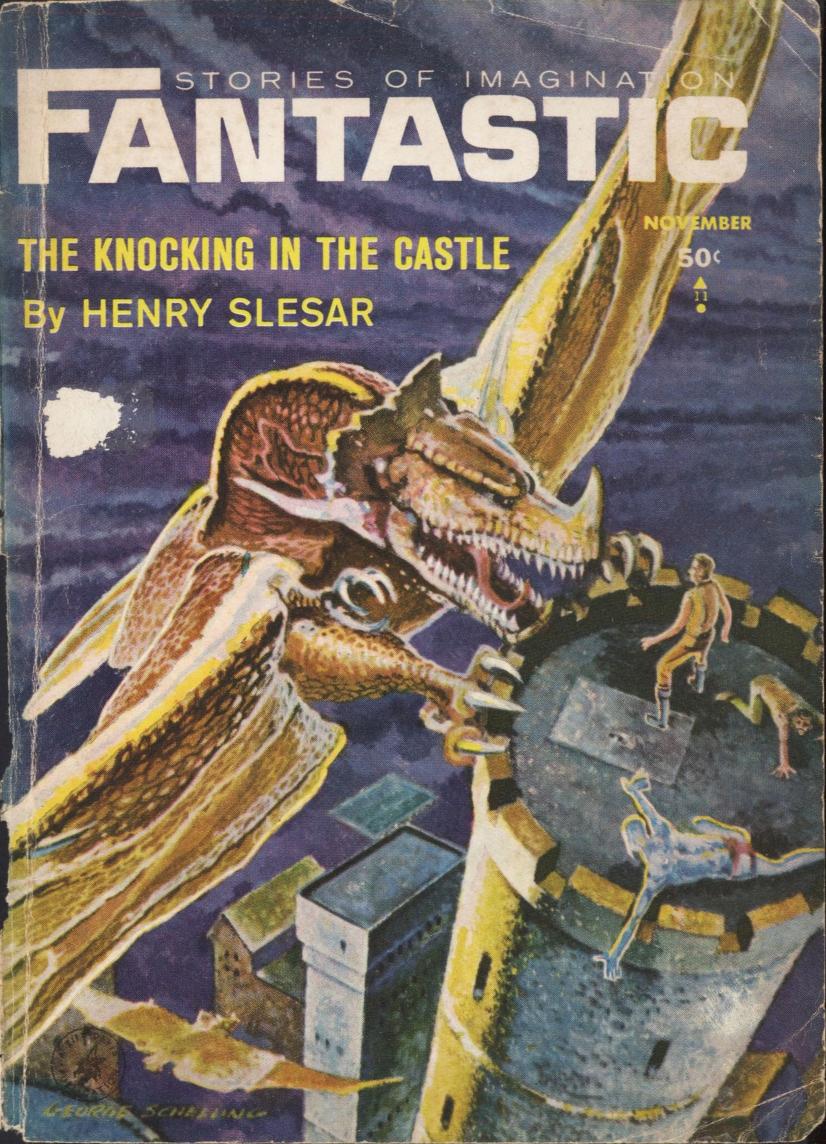


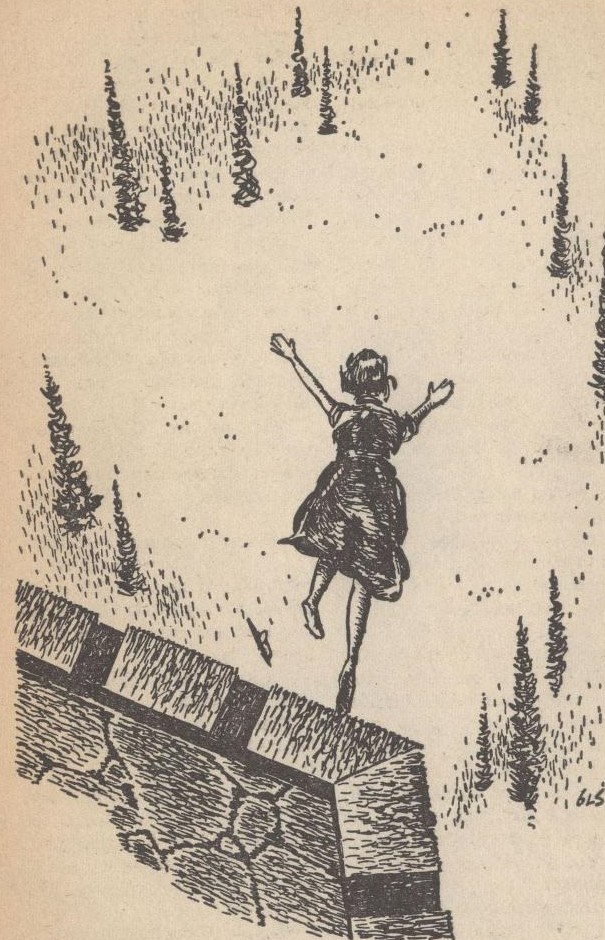

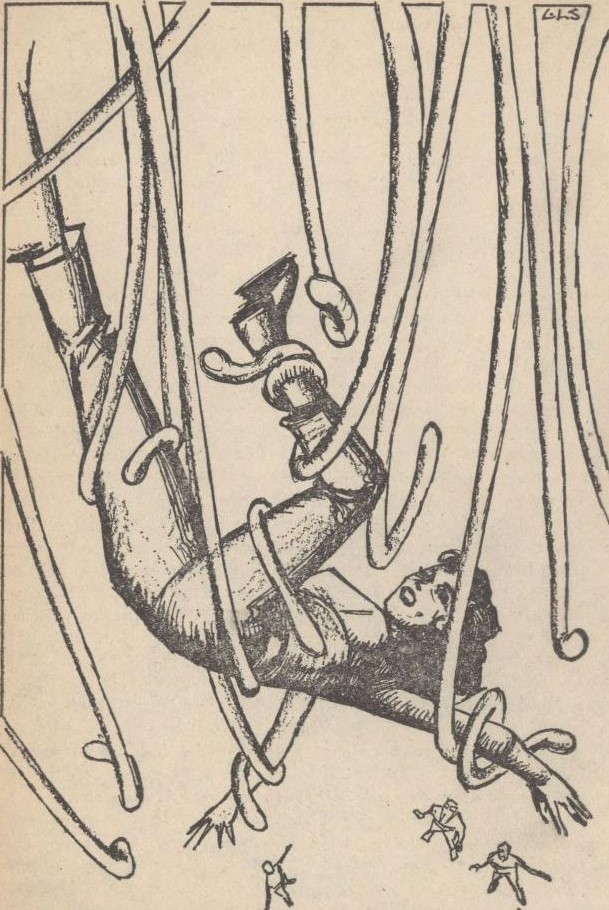


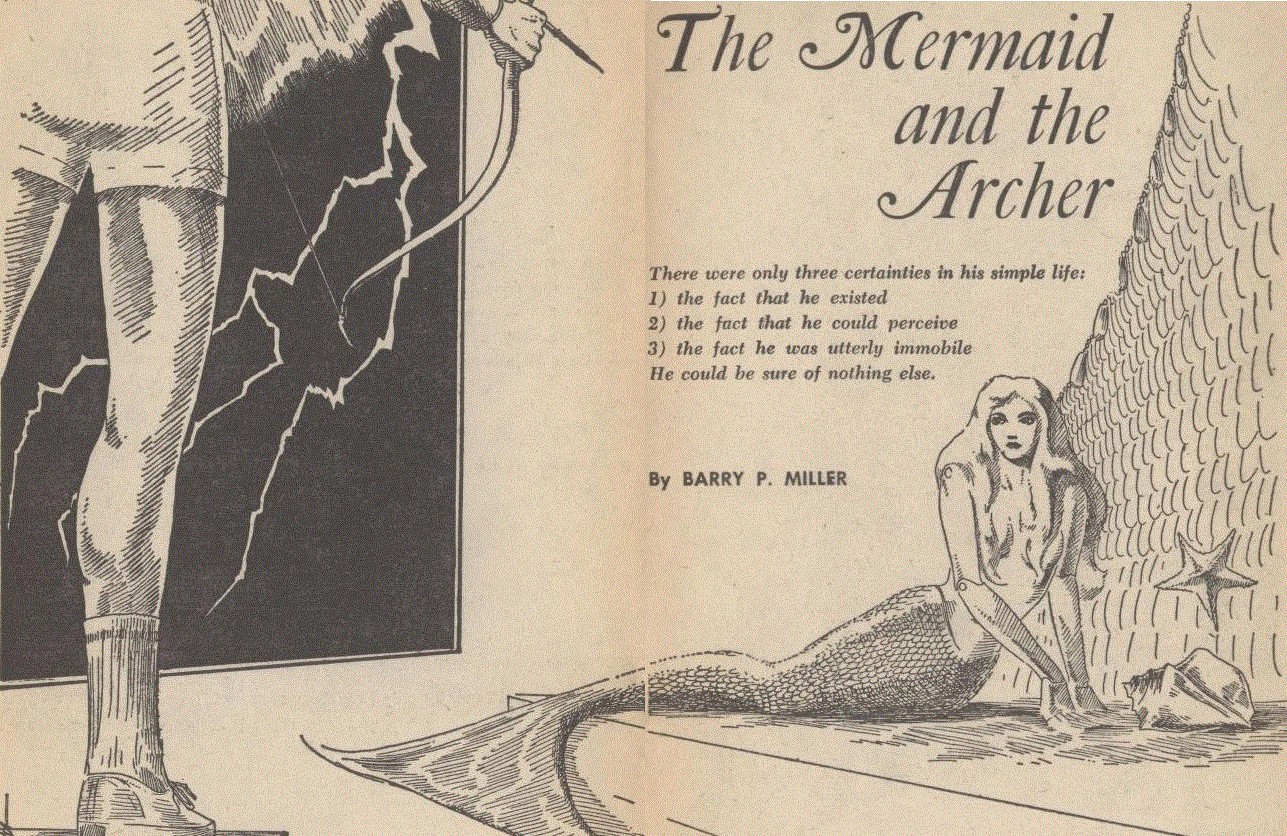
![[October 20, 1964] The Struggle (November 1964 <i>Fantasy and Science Fiction</i>)](https://galacticjourney.org/wp-content/uploads/2019/10/641020cover-660x372.jpg)








![[October 12, 1964] Slow Cruising (November 1964 <i>Amazing</i>)](https://galacticjourney.org/wp-content/uploads/2019/10/641010cover-672x372.jpg)









![[September 28, 1964] Revelation (<i>Science Fantasy</i>, September-October 1964)](https://galacticjourney.org/wp-content/uploads/2019/09/Science-Fantasy-Sept-Oct-1964-672x372.jpg)



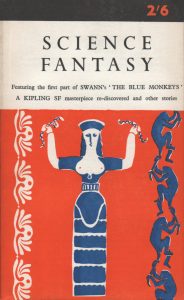
![[September 24, 1964] Looking Backward (October 1964 <i>Fantastic</i>)](https://galacticjourney.org/wp-content/uploads/2019/09/fantastic_196410-3-383x372.jpg)












